Crosstalk by Connie Willis
Posted in Reading Reviewed, Science Fiction at 12:00 on 7 October 2025
Gollancz, 2016, 506 p.
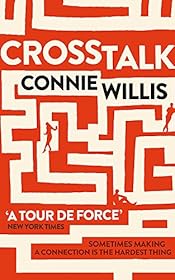
Briddey Flannigan is a woman under pressure, in her work at Commspan, a phone app company apparently a rival to Apple, with her Irish-descended family, with her boyfriend Trent Worth. She is deluged by work and family emails and seemingly rushed off her feet. All this makes for a breathless introductory chapter showcasing the author’s signature style of scenes or dialogue interrupted by events, constantly breaking off to deal with something else.
Not that the pace slows much thereafter. In a Willis novel things do seem to cascade, with incident piling on incident, misunderstandings and crossed wires, things forever on the point of being resolved only to be diverted onto other paths.
Briddey’s sister Mary Clare is an overbearing, overprotective parent to her daughter Maeve. Her other sister Kathleen, as Briddey once was, is constantly being urged to marry a “foine Irish lad” by their Great Aunt Oona who, despite not being a first or even second generation immigrant, speaks using Irish syntax and rhythms.
Boyfriend Trent meanwhile while wants her to undergo with him a procedure to fit an EED, a device which will enhance ability to sense a partner’s feelings and thus bring them closer together. The EED “creates a neural pathway that made partners more receptive to each other.” Notwithstanding their relationship, Trent from the outset is a somewhat aloof, absent figure, whose speech does not carry any conviction of affection.
Briddey is at pains to keep any hint of getting an EED away from Commspan gossip Suki, while in the works basement C B Schwartz, nicknamed the Hunchback of Notre Dame, toils away perfecting the latest app.
An unexpected gap in the EED surgeon’s schedule bumps Briddey and Trent up the queue for operation. It is then disaster strikes. In the aftermath, Briddey finds herself telepathic. Worse, it is C B, not Trent, whom Briddey can hear in her head.
Still worse, Briddey is soon to be overwhelmed by a tsunami of unexpurgated thoughts pouring into her head from people round about. Only C B’s aid and tuition in protection from the racket, building in her head perimeters and safe rooms, helps her survive. This involves a kind of technique C B compares to Hollywood star Hedy Lamarr’s invention of a frequency-hopping device to frustrate radio jamming by the Germans of Allied torpedoes. (See here; paragraph 2.)
In one of their conversations about the desire to communicate (or lack of it) C B tells her, “If people really wanted to communicate, they’d tell the truth, but they don’t,” and the phrase “‘Of course’, is a dead giveaway that you’re lying.”
He has been able to receive and broadcast for a long time and has done a lot of research. Hearing voices in your head is not a survival trait, he tells her. It didn’t do much for Joan of Arc after all. He has been worried about her for a while since he knew that telepathy is to do with the haploidgroupgene R1b-L21, the Irish carry. He himself was adopted hence the non-Irish name.
It is clear very early on where all this is going in terms of a “normal” plot. The SF and scientific aspects are merely window dressing. This is actually a romcom.
Diverting enough, though.
Pedant’s corner:- a missing comma before a piece of direct speech, “and rounded the corner and breathing in the sweet smells of grass and wet earth” (doesn’t need the second ‘and’,) “about Joan of Arc being captured by the British” (it was the English she was captured by. It long predated the formalisation of the UK,) octopi (the plural is octopuses; or octopodes if you’re Greek.)
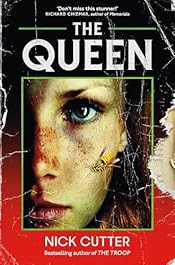

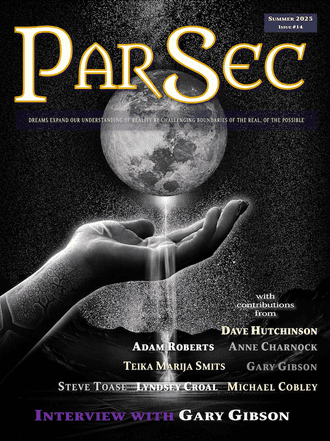 Issue no 14 of ParSec magazine is
Issue no 14 of ParSec magazine is 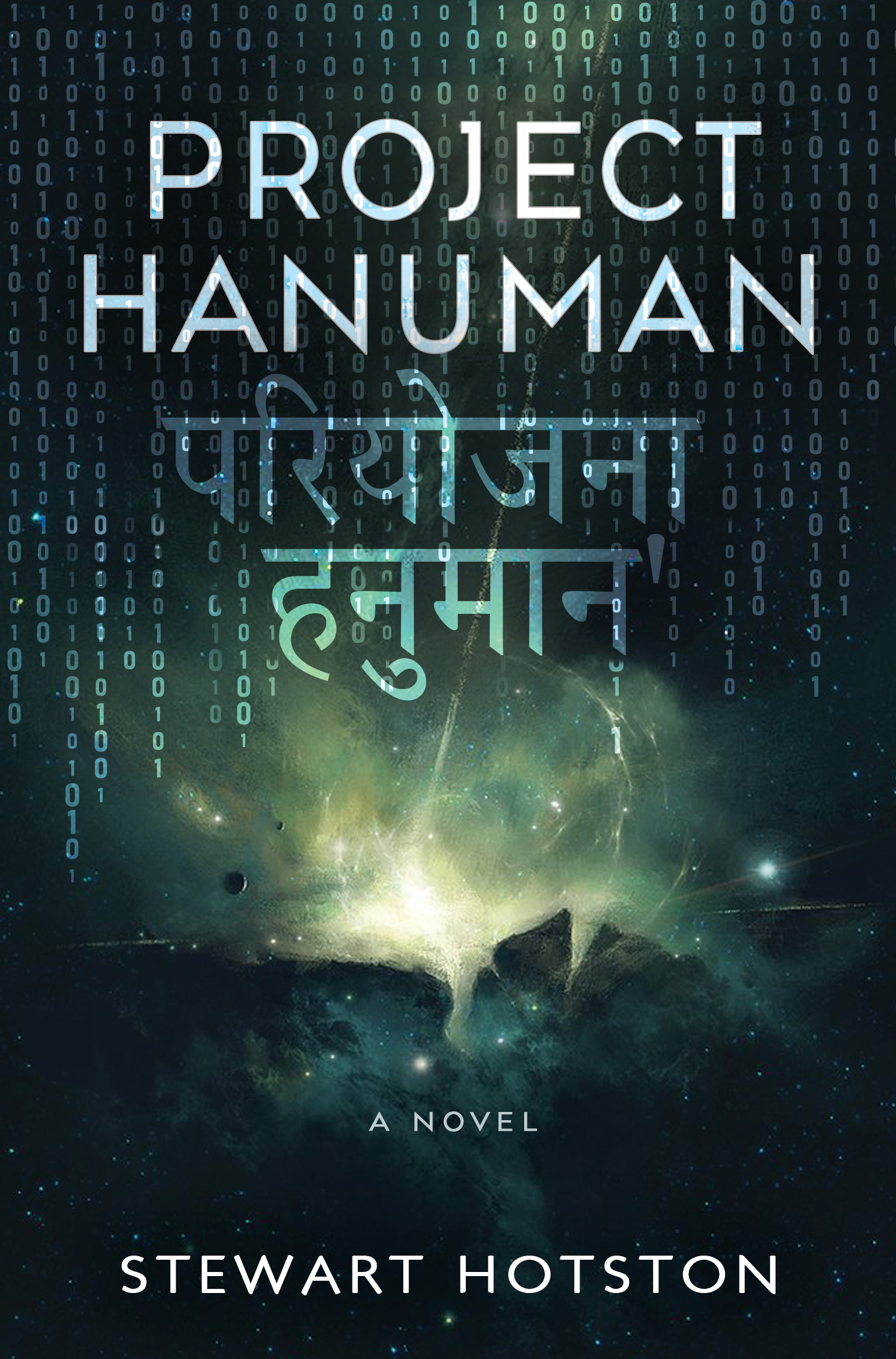 This one is called Project Hanuman and it’s by Stewart Hotston.
This one is called Project Hanuman and it’s by Stewart Hotston.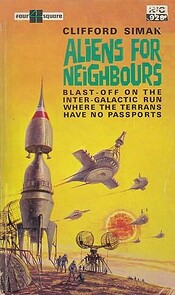 This is a collection of Simak’s stories from the 1950s, with one from 1960, and they show their age. The connecting thread of the book is that each story features aliens of one sort or another.
This is a collection of Simak’s stories from the 1950s, with one from 1960, and they show their age. The connecting thread of the book is that each story features aliens of one sort or another. The pitch for this post-apocalypse novel must have written itself. “Lord of the Flies – with girls.” Job done. Don’t you want to read it now? (No matter what I say.)
The pitch for this post-apocalypse novel must have written itself. “Lord of the Flies – with girls.” Job done. Don’t you want to read it now? (No matter what I say.)